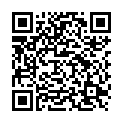|
|
|
| Module code: MAS-20-V2 |
|
|
2S (2 hours per week) |
|
3 |
| Semester: 3 |
| Mandatory course: yes |
Language of instruction:
German |
Assessment:
Term paper
[updated 14.06.2021]
|
Exam recurrence:
The information regarding exam recurrence is found within the exam policy of the study programme (ASPO).
|
MAS-20-V2 (P322-0197, S322-0194) Social Work, Master, ASPO 01.10.2020
, semester 3, mandatory course
|
30 class hours (= 22.5 clock hours) over a 15-week period.
The total student study time is 75 hours (equivalent to 3 ECTS credits).
There are therefore 52.5 hours available for class preparation and follow-up work and exam preparation.
|
Recommended prerequisites (modules):
MAS-20-I1 Transitions in the Course of Life: Lives, Biographies, and Coping with Life in the Face of Social Change
MAS-20-I2 Life Situations, Social Inequalities and Social Cohesion: Social and Educational Regulation
MAS-20-I3 Migration, Diversity and Interculturality: Socio-Educational and Structural Concepts in Migration Society
MAS-20-II1 Empirical Social Research: Principles and Perspectives with Tutorial
MAS-20-II2 Advanced Qualitative Research, Evaluation Methods with Research Workshop
MAS-20-II3 Advanced Quantitative Research, Evaluation Methods with Research Workshop
MAS-20-III1 Methods of Action: Recent Developments and In-Depth Studies Based on Examples
MAS-20-III2 Case Analysis
MAS-20-III3 Governance of Social Services: Managing and Networking Social-Professional Organizations and Civil Society Processes
MAS-20-III4 Digitization and Aesthetic Education
MAS-20-IV Compulsory Elective Seminar
[updated 30.10.2023]
|
Recommended as prerequisite for:
|
Module coordinator:
Studienleitung |
Lecturer: Studienleitung
[updated 05.08.2020]
|
Learning outcomes:
After successfully completing this module, students will be able to:
- rethink selected theories from the field of social sciences,
- appreciate their value for scientific work,
- independently develop a scientific research topic,
- evaluate and assess the content of a scientific research topic,
- develop a research design and
- evaluate social problems.
[updated 14.06.2021]
|
Module content:
In the theory and research workshop, students will delve into selected theories from the field of social sciences and apply them to empirical questions. In the process, they will analyze and evaluate current studies. The focus will be on the development of a research design that will be linked to an evaluative task.
[updated 14.06.2021]
|
Teaching methods/Media:
- Information from the lecturer(s) and or guest lectures
- Exercises within the framework of the seminar
- Practical implementation in the context of developing an evaluative research design
- Independent study (recommended reading)
- Group and individual work (also as preparation for the module and for follow-up of module)
[updated 14.06.2021]
|
Recommended or required reading:
Literature will be updated regularly and therefore communicated in the seminar and seminar schedule.
[updated 14.06.2021]
|


